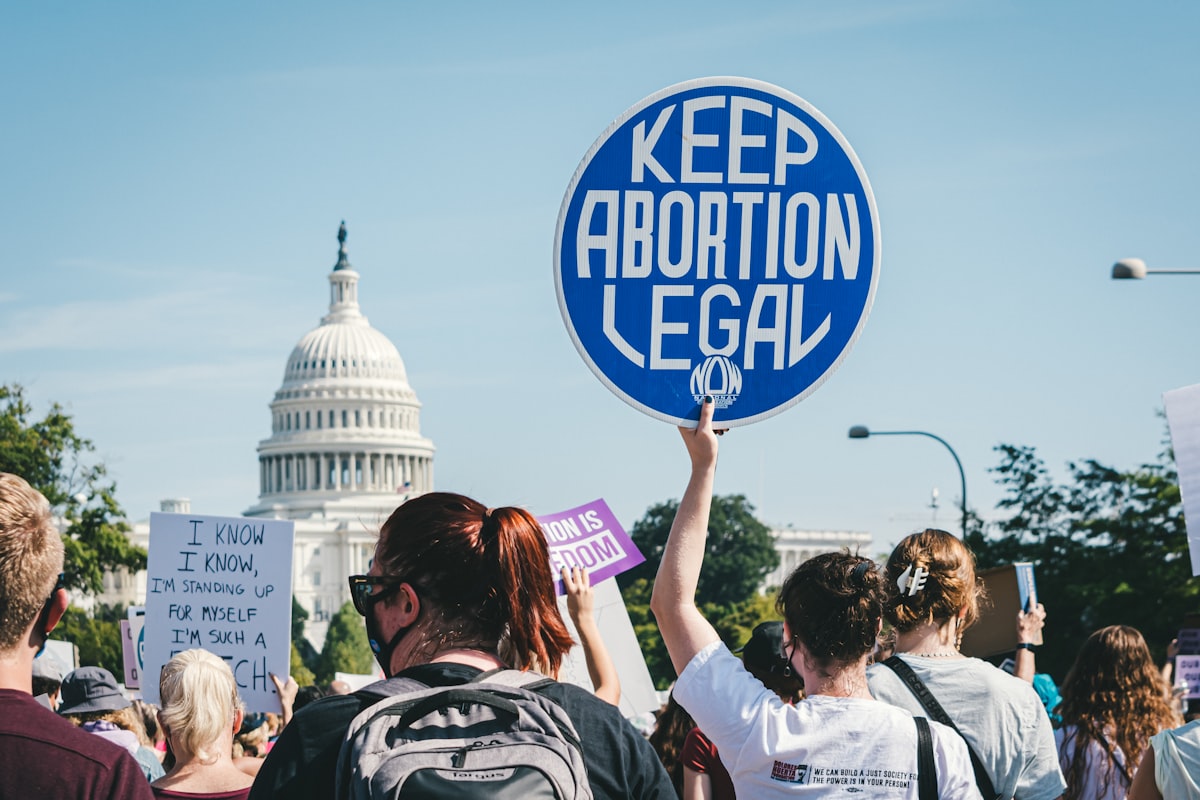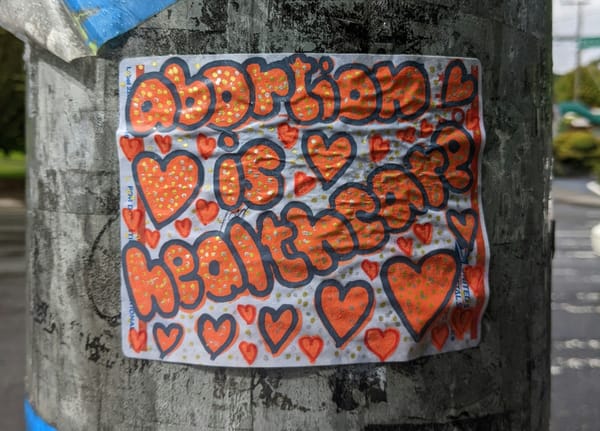A Texas Physician On The Impact Of Abortion Bans

Earlier this month, the Texas Signal Media Foundation spoke with Dr. Ghazaleh Moayedi, a Board-Certified OB/GYN and Complex Family Planning specialist in Texas. For several years, Dr. Moayedi has been a leading voice against restrictive abortion laws like those currently in place in Texas. This interview has been edited for clarity and length.
It’s been a few years since we last talked. This is probably a basic question, but what do you do?
I’m a board-certified OB/GYN and complex family planning specialist. I also have sub-specialty certification in abortion care and contraception care. So what I’m doing now… how much time do we have?
Take as much time as you need.
To tell the story, I’m going to back up a little. When I finished [my] fellowship in 2018, I moved back to Texas. I’m from Texas. I [did] my fellowship in Hawaii to learn complex abortion and contraception care. I came back and was working as one of the few second trimester abortion providers in North Texas. There were lots of job transitions in 2020 because of COVID, but really because of the first wave of extreme abortion bans here in Texas. If you remember at the beginning of 2020, [Greg] Abbott essentially used the pandemic as an excuse to stop abortion care in Texas for about a month. Abbott and Paxton together, claiming that abortion was not essential health care and forcing abortion clinics to shut down, which then forced a wave of layoffs as well.
That is something a bit lost to time. The COVID restrictions preceding any actual laws. Seemed to be a foreboding.
It was a foreboding. At that time, the layoffs where I worked happened a few weeks [into 2020]. What I realized in that moment was that Abbott and Paxton were going to do anything possible to use their positions to ban abortion outside of all the traditional means the [legislature] had been doing. This was suddenly [like] I need to start traveling outside of Texas, to provide abortion care for Texans. I expanded my licensure and started looking for positions outside of Texas, but were within driving distance. I got licensed in Oklahoma and started traveling soon after to clinics in Oklahoma to provide care. So that was the beginning of how my career is changing during all of this.
And then came Senate Bill Eight.
All the clinics didn’t shut down initially, but the writing was on the wall of what was going to happen. It extremely decreased the type of care we could provide. That work in Oklahoma became even more important, even more busy. They were all of a sudden seeing people [from] deep within Texas, not just Wichita Falls or Dallas/Fort Worth. Then, Oklahoma banned abortion prior to the Dobbs decision. Am I going to be able to continue traveling? All of that to say what I’m doing now? It is a combination of multiple different applications of my skills. I am providing abortion care out of state for people that are impacted from essentially six different states. I am continuing to provide general OB/GYN care in Dallas that I have been doing since 2018. Through my own private practice I am doing telemedicine care for people that need birth control, emergency contraception, gynecology visits. And also over the past two years doing ultrasound care.
Texas is one of several states with an abortion ban where maternal mortality has been on the rise (and it’s increased threefold for black women). There doesn’t seem to be a lot of impetus in the legislature to enact anything to reduce maternal mortality, maternity deserts, or the number of people uninsured.
In fact, every legislative session the state seems to double down on these alternatives to abortion programs that time and time again have been found to waste millions of taxpayer dollars. They can’t even show where their money went. The majority do not provide real resources, tools, information for people to be able to take care of themselves. They are pretty disjointed from medical care all together. There isn’t even a physician’s office that would even take an ultrasound from one of these clinics as a legitimate dating ultrasound. For the most part, these centers that are getting our taxpayer dollars to “address maternal mortality,” they don’t even have to follow general patient privacy practices. They have argued in court time and time again that they are not medical institutions, they are faith-based organizations.
The last time we spoke, Senate Bill 8 had just gone into effect in Texas. This was months before Roe v. Wade would be overturned in the Supreme Court. You testified and spoke about how abortion bans affect the health and safety of all pregnant people. Unfortunately, we have seen that play out through heartbreaking cases like that of Kate Cox. What goes through your mind thinking about that?
It's frustrating. I’m glad people are paying attention with each of these cases but it’s frustrating that people have to continue to tell these traumatic stories and nothing changes. There is a huge value in people telling their stories, but we are not here because not enough people shared their trauma. What we are addressing with abortion bans is extremist ideology. It’s not logical thought. There is no compromise or logical middle ground with people that have extremist ideology.
On a slightly more upbeat note, you were a consultant on The Morning Show, the Apple TV series with Jennifer Aniston and Reese Witherspoon. How did that come about?
I think we got connected through my work at Physicians for Reproductive Health. I know the producers and showrunners reached out to a lot of different Texas activists. This was at the beginning of SB 8 when they reached out because I was in my hotel room in Oklahoma after a really long day of taking care of patients. The writers and showrunners really wanted to depict an accurate portrayal of what was happening and incorporate abortion into a storyline of the new season. Initially, they wanted Bradley [Reese Witherspoon’s character] to get arrested in some way and it was so critical that they reached out to us about this. One, with SB 8 there was no way someone theoretically would get arrested, it’s a civil penalty. And it would have been so dangerous to depict that. There’s still so much disinformation around it that it would have perpetuated the ongoing harm of that bill. It was such important work that the show did to speak to experts on the ground to understand the impact of a sensationalist story and what it could do.
That’s a great job reigning that plotline in because I watch The Morning Show and they love crazy scenarios.
I was really pleased that important messaging points came through. They really listened to us. Jennifer Aniston’s character [says] medication abortion is safe. It advanced the storyline in a way a show needs to, and also conveyed real information.
This is one of the few times I’ve seen medication abortion referred to or depicted in Hollywood.
I’m seeing it more. There was an SVU episode that was awful around medication abortion. I remember being so upset watching it because one of the key [plot elements] was that you could test a person’s blood, and there’s not a test that does that. It perpetuates false knowledge and gives people misinformation. I don’t know what the point of that episode was, but I found it to be an incredibly harmful message. Over the past few years, I have been seeing more and more [content]. Many of my colleagues at We Testify have been helping writers and journalists craft these storylines in a more medically accurate fashion. I think it is starting to become more common.






